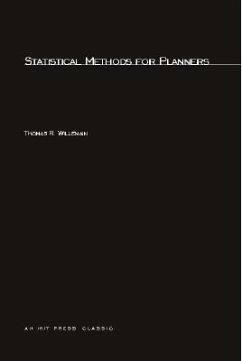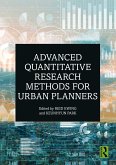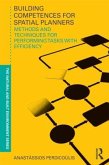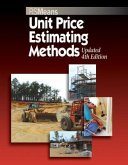This is a text for introductory courses on statistics for planners. It is unique in its orientation and concern for the realities of planning practice.The book covers such standard topics as probability, random variables, conditional probability and Bayes' rule, descriptive statistics, commonly used distributions, crosstabulations, Bayesian estimation, significance tests, measures of strength of association, bivariate and multivariate regression, experimental design, and non-parametric statistics. Its original contri bution is its focus on planning applications, with emphasis on Bayesian methods, multi-variate regression, the mathematical model of experimental results, and graphical methods of testing assumptions.Examples and homework problems have been chosen to relate statistical methods to issues of substantive interest to planners, in most cases using real-world data.While the book has been designed as a text for Masters in City Planning courses, portions of it have been used successfully at MIT in both doctoral and undergraduate planning courses. The applications and the range of statistical methods considered will also make this book a valuable resource for methodological classes in public policy analysis, economics, and social welfare. Students should be familiar with algebra, including logs, exponentials, and the graph- ing of functions. Calculus is not used. No prior knowledge of probability and statistics is assumed, although familiarity with histograms would be helpful.
Bitte wählen Sie Ihr Anliegen aus.
Rechnungen
Retourenschein anfordern
Bestellstatus
Storno





